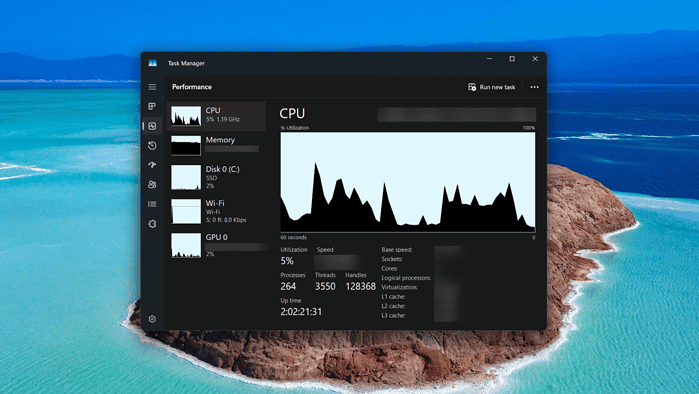BSD Unix actually inspired Windows Task Manager in its earlier days
A bit of Windows history for you to read today
2 min. read
Published on
Read our disclosure page to find out how can you help MSPoweruser sustain the editorial team Read more
Key notes
- Task Manager in Windows 11 manages system performance and processes.
- A former Microsoft programmer said that it was originally inspired by BSD Unix’s top command.
- He developed Task Manager in the ’90s.

Task Manager is the backbone of Windows’ operations, especially in these days of Windows 11, where everything is so AI-connected. It can monitor how your system performs and manage all its processes.
But, ever wondered how that came across?
Dave W. Plummer, a former Microsoft programmer back in the ’90s, wrote Task Manager, and he shared some of the things that inspired the program. In his own words, Windows Task Manager was primarily inspired by the top command from BSD Unix, the now-discontinued Unix operating system that was written in the C language.
Plummer, who also brought us things like the classic Space Cadet Pinball, said that the lineage of Task Manager is clearly influenced by this older system. His interest began when he saw a PDP-11/83 in his high school dining room, where he likely saw the Unix-based top for the first time.
Plummer was also responsible for creating the disk formatting UI in 1994, during the transition from Windows 95 to Windows NT. He set an arbitrary 32GB limit for FAT volumes, which has persisted for decades. And it’s only recently that Microsoft finally removed the size limit of 32GB for FAT32 partitions to up to 2TB.
Now, Windows Task Manager has shed its skin to a more friendly interface for our eyes, but its main functionalities are still around. Even those that have been there for decades. In somewhat related news, even Chrome on Android will also soon have a task manager, like its desktop version.








User forum
0 messages